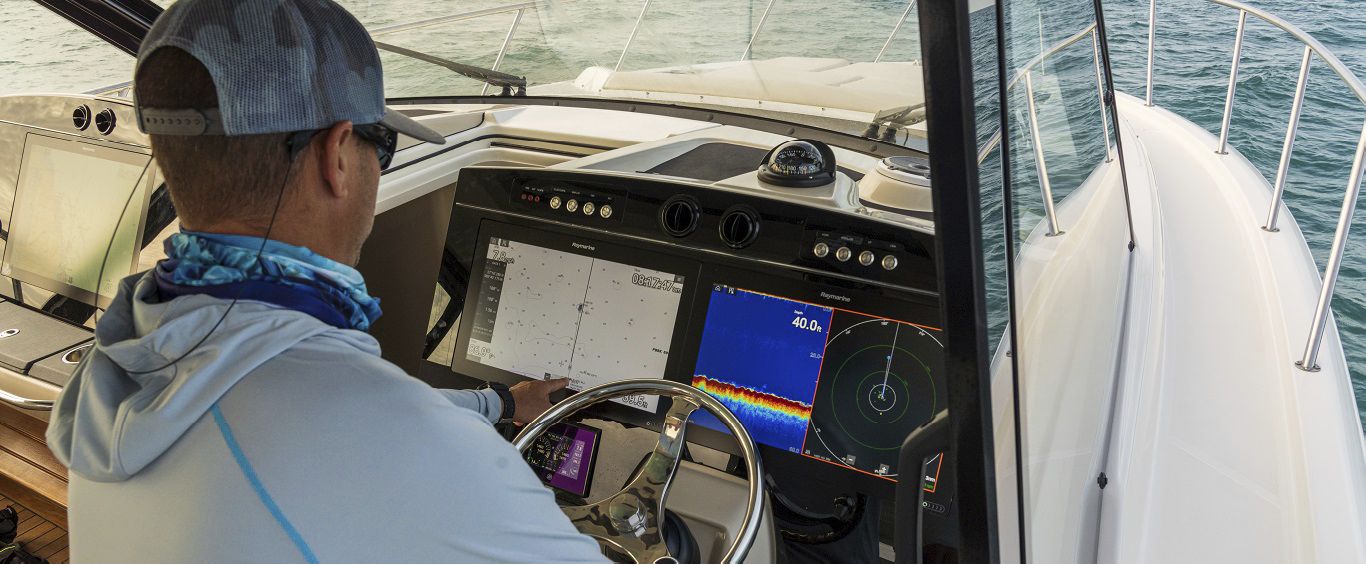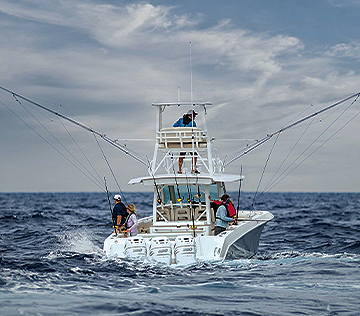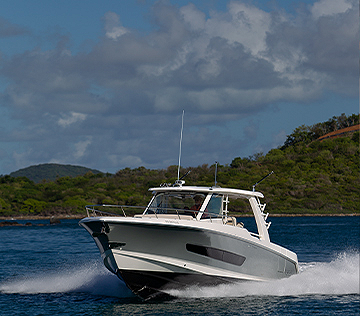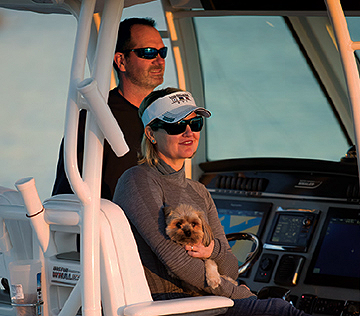
Boat Training & Safety
Here are courses and steps to take in the off season
Your Boston Whaler may be sitting out the winter but that doesn’t mean your boating season is on hold. There are a number of things you can be doing to learn, fix, and prepare while you keep a boater’s mindset through the off-season.
Build a boating safety kit
Every boat needs to carry minimum safety gear mandated by the U.S. Coast Guard. Most of the requirements depend on the length of the vessel which falls into one of five classes. Details on what kind of flares, lights, lifejackets, fire extinguishers and so on that are needed by each class of vessel are outlined in this handy chart on the U.S. Power Squadron site. Check the list and if anything’s missing, go shopping.
For the gear that’s already aboard, use this downtime to check if it’s in serviceable condition. Are your extinguishers and flares up to date? Are there expired medications in your onboard first aid kit? Do you have fresh batteries in your flashlights and handheld electronics like a GPS or VHF radio?
Finally, consider adding equipment that may not be required but may help in case of an emergency. A good anchor will hold you in place while you wait for help. Extra line can be used to tie on loose deck equipment and cable ties and duct tape are always handy for quick fixes, so toss them aboard.
Attend to routine maintenance
Winterizing your Boston Whaler has many components. You should drain coolant and/or oil, service the running gear, repair lights or electronics and fix cushion tears or stains. Putting a boat away for winter clean and waxed will also keep it in better condition while under a cover and will make launching it in spring much easier and faster.
Boater safety training
Much of the winter is also about improving the boater that you are. Use this time to take supplemental training. Many courses are offered online. Start with your state boating agency that probably offers online courses and then also look into training at: Boat U.S. Foundation, Boat-Ed.com, and BoaterExam.com. You can also contact your local branch of the U.S. Power Squadron or the U.S. Coast Guard Auxiliary. Nasbla (National Association of State Boating Law Administrators) also has a listing of current courses some of which are free and some for a nominal fee. You can train online in the comfort of your own home or contact the dealer who sold you your Boston Whaler and ask about wintertime training or where to find in-person safe boating courses in your area.
This is also a good time to brush up on your rules of the road knowledge and your knots. Check out BoatSafe.com for rules and tips as well as mnemonics to help you remember how to avoid a collision on the water. For a little reading, purchase the USCG’s booklet: International – Inland Navigation Rules.
Finally, learn (or refresh) some knots. There are books published on all the nautical knots or visit AnimatedKnots.com or 3DKnots.com.
Winter is a great time to do boat safety training and attend to the safety kit that may just save your day on the water next season. Not only will you accomplish something, the process of planning and training will keep you in a boater’s mindset until you can get out on the water again.
--
This is for general information purposes only. Your use or reliance on any of the information in this Blog is solely at your own risk. Under no circumstance will we have any liability for any loss or damage of any kind incurred as a result of the use of any of the information provided.
Options and features mentioned subject to change. Please confirm availability of all accessories and equipment with an authorized Boston Whaler Dealer.



